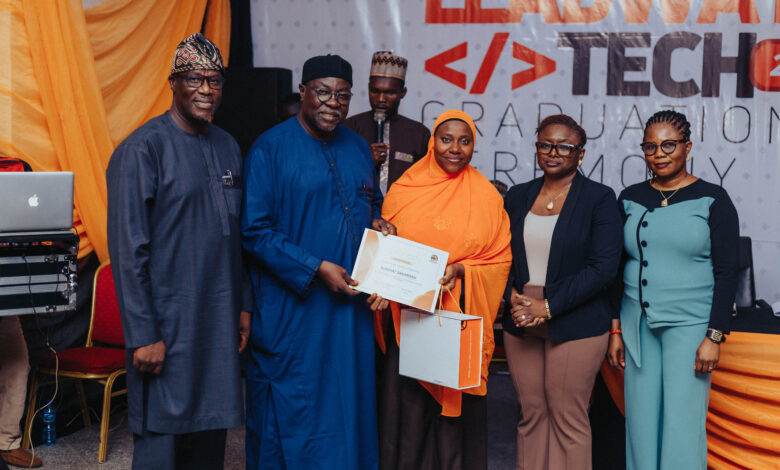Leadway Group, one of Nigeria’s leading insurers, has graduated 33 young developers from its intensive 13-month technology program, a fully sponsored initiative aimed at bridging Nigeria’s digital skills gap.
The program, hosted in Kaduna, trained participants in key areas including frontend and backend development, data analytics, and industry-focused digital solutions. It forms part of the company’s broader mission to empower youth with skills essential for a technology-driven economy.
Speaking at the graduation, Kunbi Adeoti, Leadway’s Chief People Experience Officer, stressed that empowering young Nigerians with digital skills is “a long-term investment in national growth.”
Similarly, Celestina Okere, Head of Learning & Development at Leadway, highlighted that the initiative was designed not just to train but also to mentor participants, equipping them with confidence and practical experience to compete in a fast-changing global tech landscape.
This approach reflects a growing trend among Nigerian corporations to step into spaces traditionally left for government—skills development, education, and workforce readiness—particularly as technology becomes a core driver of the economy.
Building the digital economy from the ground up
Nigeria has repeatedly outlined its ambition to become a digital-first economy, with fintech, insurance technology, and online services at the center of this transformation. However, the country continues to face a critical shortage of trained professionals.
By providing world-class training and mentorship, programs like Leadway’s begin to address this gap. Yet, the numbers reveal the challenge: 33 graduates are a promising step, but far from sufficient in a country of more than 200 million, where millions of jobs in technology-related fields will be needed to meet economic targets.
Leadway’s program underscores a reality for corporations: the demand for digital talent is not only a societal need but also a business imperative. Companies in insurance, finance, and technology cannot grow without a skilled workforce to build and maintain platforms.
In this sense, corporate training initiatives serve a dual purpose—they empower communities while securing a talent pipeline for industries navigating rapid digitalization.
Why it Matters
The graduation in Kaduna raises a larger question: Will this be a one-off effort or the start of a sustained pipeline of tech talent? Scaling such programs will likely require partnerships—between corporations, government, and global institutions—to create training models that can reach thousands more.
As Nigeria positions itself within the global digital economy, initiatives like Leadway’s hint at a future where private companies do more than insure risks—they actively shape the nation’s ability to compete.
Talking Points
The fact that an insurance company—not a university or a government agency—is taking the lead in digital skills training tells us everything about Nigeria’s misplaced priorities. Public institutions should be driving national digital literacy programs at scale. Instead, corporations are stepping in, mostly for strategic self-interest.
The result? Training becomes fragmented, driven by corporate needs rather than national strategy.
Leadway’s training program is not pure charity. It’s a strategic investment in its future workforce. That’s not necessarily bad—it makes sense for companies to ensure they have the digital talent they need.
But we must recognize this dual motive, so that we don’t confuse corporate strategy with national development. If Nigeria’s tech skills future is left to corporations alone, it will serve boardrooms before it serves society.
Digital transformation in Africa is accelerating—fintech, edtech, healthtech—but the human capital to sustain it remains thin. If each corporation runs its own small-scale program, Africa will continue to lag behind countries that invest massively and centrally in tech education.
This is not a race Nigeria—or Africa—can afford to lose, because digital skills are the new oil.





